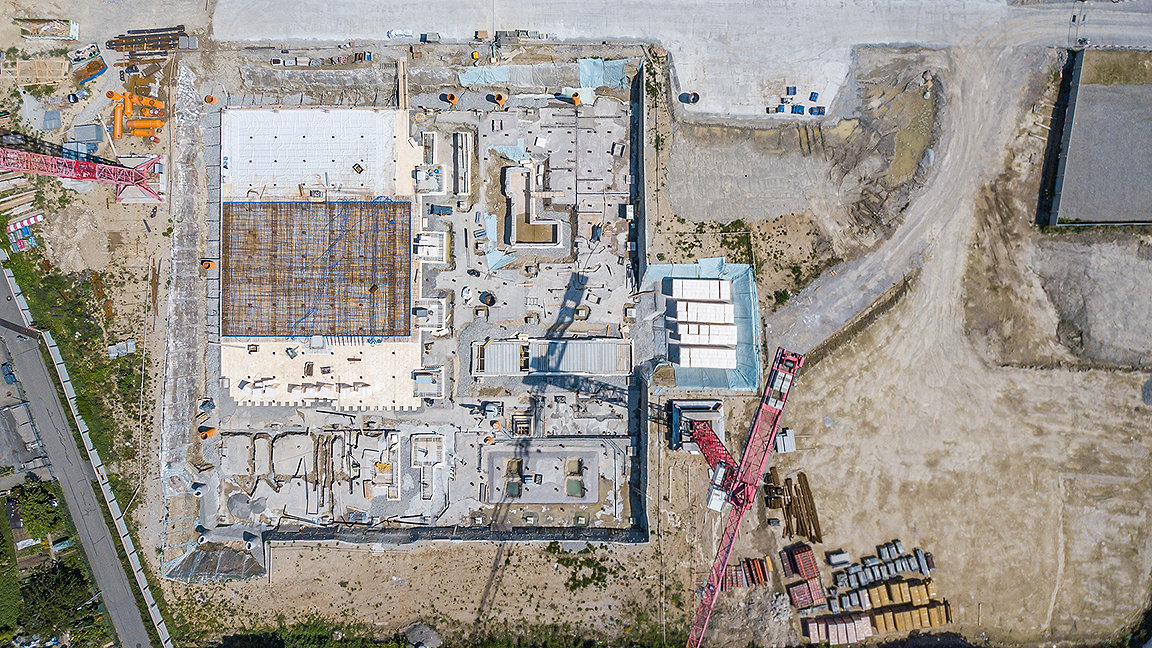
One in four individuals have suffered from poor mental health, and the crisis is particularly acute in construction.
Research by the Lighthouse Construction Industry Charity for their Building Mental Health social value report indicates that 25% of those in the industry have contemplated suicide, and more than 1,400 construction workers died this way between 2011 and 2015. Reasons given for poor mental health include lack of job security, long, unsociable hours, time away from family, and lack of employer support.
Lighthouse Club initiates mental health action
The 2018—2021 Building Mental Health (BMH) project was organised by the Lighthouse Charity and funded by the CITB levy. It emerged in response to the desperate need to address this epidemic.
The project is designed to enable everyone in construction to access support, raise awareness of the issues, and provide training to mental health first-aiders.
BMH devised a training programme with the following aims:
-
to train 288 mental health first-aid instructors
-
to enable those instructors in turn to train 3,000 first-aiders in the industry
-
to increase industry awareness of the mental health epidemics severity
-
to disseminate best practice and make it widely available and accessible
-
to remove the stigma associated with mental health in the construction industry in particular, and society in general.
Training and support cascaded through industry
Despite being disrupted by the pandemic, BMH successfully trained 284 instructors. These in turn trained a subsequent 4,596 mental health first-aiders, exceeding the original target by 65%. The geographical spread of instructors was managed to ensure there was as much coverage of England, Scotland and Wales as possible.
The courses to train instructors were delivered in three separate sessions. Most participants also found they required another three days to complete the coursework successfully.
After this, instructors paired up to deliver two training courses. Feedback on these was assessed before the newly qualified instructors were allowed to deliver courses unaccompanied.
As well as training, the project has developed a free app through which workers can access confidential support. This was made available in 2020 and has been downloaded more than 30,000 times since.
BMH has also run almost 3,000 awareness sessions for the construction industry, raising the profile of mental health issues and attempting to reduce the associated stigma.
Findings endorse project's social value
Corporate social responsibility consultancy Collins McHugh spoke to a small group of instructors to get further feedback and insights. The instructors noted that it seemed easier to address mental health at larger contractors than smaller companies, and that SMEs still struggle to deal with the issue fully. However, respondents felt the key to success at any company is the active and serious engagement of senior management.
The project received £1m in CITB funding and resulted in an estimated social value of £5.5m. Collins McHugh estimated the social value of the project from a combination of completed surveys, external research and the National Themes, Outcomes and Measures (TOMs) framework, which is widely used in the construction industry to assess the impact of projects.
The project achieved trained 99% of the target number of instructors and 165% of the planned first-aiders. Instructors reported that almost all sessions were full or even oversubscribed, which may indicate significant unmet demand for mental health support.
BMH recommends five measures that every company can take to foster a successful mental health culture.
-
Commit to making a difference by signing the mental health charter.
-
Introduce a helpline by ordering one through the Employee Assistance Programme and encourage staff to download the free app.
-
Deliver a mental health tool-box talk to raise understanding of the issues, and illustrate the importance of starting a conversation.
-
Run a mental health training day to provide a more in-depth understanding.
-
Ensure you have enough mental health first-aiders for your place of work.
'The project achieved trained 99% of the target number of instructors and 165% of the planned first-aiders'
The Lighthouse Construction Industry Charity is a registered charity that offers support to construction workers and their families.
Contact Lighthouse: Email
Brian Ward is the editor of RICS Construction Journal
Contact Brian: Email
Related competencies include: Diversity, inclusion and teamworking, Health and safety, Inclusive environments

